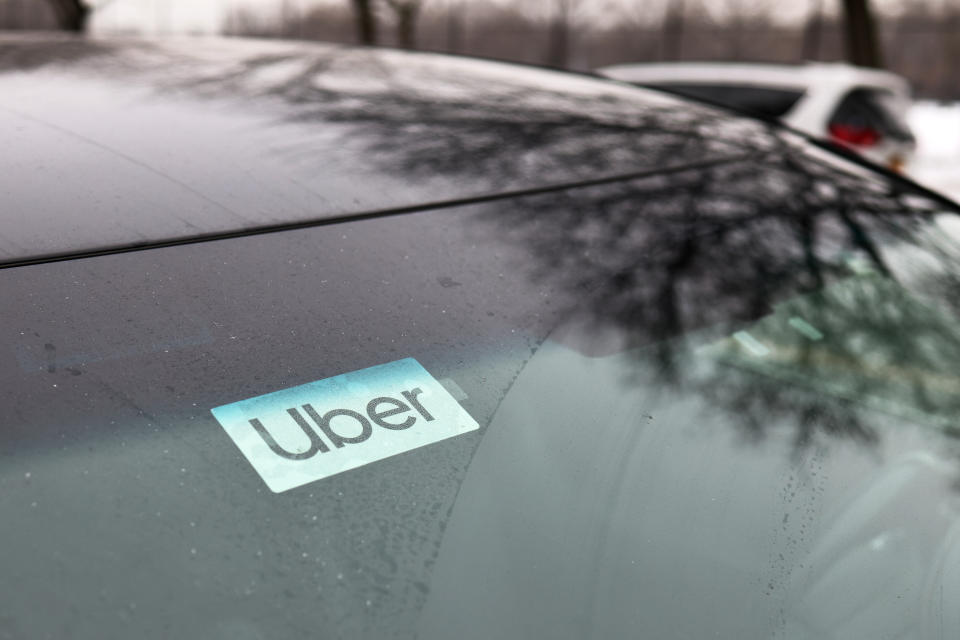Biden Repeals Trump Rule Meant To Protect Gig Economy's 'Independent Contractor' Model
The Biden administration is dismantling another piece of former President Donald Trump’s employer-friendly legacy, undoing a labor regulation that would have made it harder for workers to sue gig companies and other businesses that misclassified them.
The Labor Department announced Wednesday morning that it was repealing the previous administration’s “independent contractor” rule. That rule, which has not gone into effect, offered companies more leeway in classifying workers as contractors to avoid basic employment costs.
The change means workers would have an easier time filing claims alleging they are employees eligible for minimum wage and overtime protections, and entitled to back pay if they were misclassified.
Labor Secretary Marty Walsh said in a statement that by withdrawing the Trump rule, “we will help preserve essential worker rights and stop the erosion of worker protections that would have occurred had the rule gone into effect.”
The policy reversal does not come as a surprise. The Biden administration signaled in March that it intended to scrap the rule.
Business groups had lobbied Trump officials to institute the rule because it would make it difficult for workers to pursue class-action lawsuits alleging wage theft. Labor Department officials had issued it just two weeks before Trump left office, in one of many “midnight” regulatory maneuvers favored by industries.
When they announced their intention to spike the rule, Biden administration officials argued that it wasn’t supported by wage-and-hour law or court decisions. They also said the Trump team failed to account for how misclassification hurts workers financially by taking away minimum wage protections and the time-and-a-half pay they could get for working overtime.

Worker misclassification has become one of the most controversial aspects of employment law, sparking fights on Capitol Hill and in statehouses.
In many cases, workers are legitimately independent from the firms they are performing work for. For the purposes of wage-and-hour law, the Labor Department holds out several factors to determine whether a worker should instead be classified as a traditional employee. The Trump administration wanted to change the criteria so that it was easier for companies to put workers in the contractor bucket.
The issue of misclassification extends well beyond the app-based gig companies, affecting huge industries like trucking and construction. Businesses claim that classifying workers as contractors allows those workers to maintain flexibility if they don’t want a traditional job, but the arrangement brings companies huge savings on payroll taxes, worker compensation insurance and other costs they would otherwise bear as employers.
Many of the costs of employment end up falling on workers, as when app-based drivers foot the bill for gas and the wear-and-tear on their cars. But they can also fall on taxpayers and the government, like when so many drivers ended up out of work because of the coronavirus pandemic. Uber and Lyft had not been paying into state-based unemployment systems, so Congress had to set up and fund a separate insurance system to help those workers.
The Economic Policy Institute says misclassification comes at a steep price for governments.
“The loss of billions of dollars in tax revenue creates a significant financial burden for local, state, and the federal governments, not only due to lost revenue but also because of the added cost of providing social services to uninsured workers,” the left-leaning think tank found in a 2015 analysis of the problem.
Walsh recently said in an interview with Reuters that “in a lot of cases” gig workers should be classified as employees rather than contractors.
“In some cases they are treated respectfully and in some cases they are not, and I think it has to be consistent across the board,” he said.
Related...
5 Effects Of The Pandemic You're Only Just Now Feeling At Work
Unemployment Benefits Are Not Creating A Worker Shortage
Citing 'Labor Shortage,' Montana To Stop Federal Unemployment Benefits
This article originally appeared on HuffPost and has been updated.


